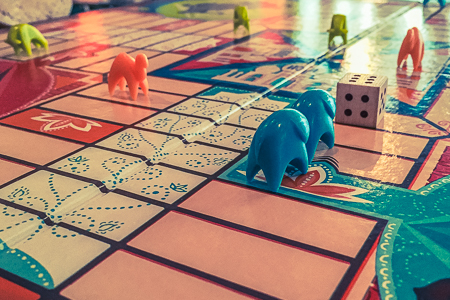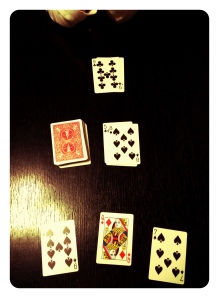#2’s “playdate” today has prompted me to wonder about this odd social encounter between parents with little in common beyond having had successfully reproductive sex at some similar time in the past. I did not grow up with the “playdate” and still have an uneasy relationship with it.
Apparently, “playdate” is a relatively recent term describing yet another way parents schedule their children’s free time. We justify the “playdate” by invoking “safety.” The world is, we fear, too dangerous to leave children unattended. Unattended children are targets for abduction. Unattended children injure themselves and others. This anxiety has pruned childhood of its autonomy and adventure.
There might be other contributing reasons for the rise of the “playdate.” On the one hand we parents no longer wander cities. If we are unlucky enough to arrive somewhere without a pre-arranged ride from the airport or train station to our destination, we hail a taxi. When we travel further afield, we increasingly prefer the full-serve tour packages, which often include organized transfers from airport to hotel. Tour buses filled with other tourists conduct us around the city while we listen to some expert describe the scene passing by our windows. We have acquired a taste for the sanitized, timetabled, air-conditioned door-to-door service, so our children must too prefer the same service. We schedule their “playdates,” load them into the car parked in the attached garage, drive them to their “playdate” in climate-controlled comfort and a DVD playing on the in-dash or in-seat screen. Whether that drive is just a few block or across town.
On the other hand, children’s quotidian experiences have changed. When I was young all the kids on the block as well as the next four blocks down attended the same school. We all walked to school the same way. We all walked home the same way. We cut through the same grumpy old woman’s yard who threatened us each afternoon. Childhood was defined by neighborhoods which were linked to our school by trails of kids walking to school each morning and home each afternoon. Today, as I see more and more parents sending their kids to charter schools or private schools or home schooling their kids, that sense of neighborhood as shared social and academic experience is fading. By necessity and by design kids are bused around incredibly complex networks of bus routes or driven to school by their parents. Today, for example, #2 and I were in the city for a “playdate” with a classmate. While #2 and her friend spend much of their day together, they have no shared sense of neighborhood or social experience. They don’t ride the same bus. They don’t walk the same routes. The kids our street attend more than a half dozen different schools—only two families send their children to the same local school. Even those kids who attend the closest of the schools, a private school roughly at the end of the block, are driven there by parents.
We parents have changed childhood’s topography. In the process, we have also thrust ourselves into strange, sometimes awkward social situations. For me, because I am the more visible parent, other mothers typically arrange the “playdate” with me. I find myself at homes with very nice mothers with whom I have little in common other than, as mentioned, having been guilty of procreation about the same time. The whole experience reminds me of some double date arranged by a friend whose boy/girlfriend had a friend who needed a date. Once again I am fumbling for topics of shared interest, grasping for threads of the conversation when one unravels, trying to be interesting while not revealing so much that might look like a lunatic. Maybe mother-mother “playdates” are less awkward. Perhaps mothers can more naturally find common interests and topics of conversation.
Despite the latent discomfort, I am generally happy to have the chance to get to know these mothers. I have found most of them to be nice, smart people with interesting lives and experiences. In some cases, we the parents have become friends, which is more than I can say for any of the blind dates I endured. I will never be comfortable with the “playdate” and I look forward to when I can stop “playdating,” but I have come to appreciate what it can offer.



You must be logged in to post a comment.